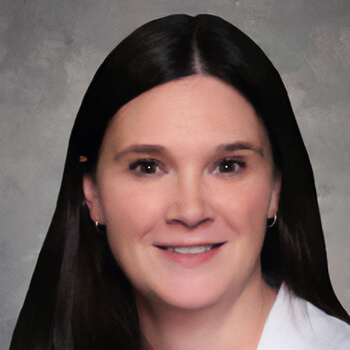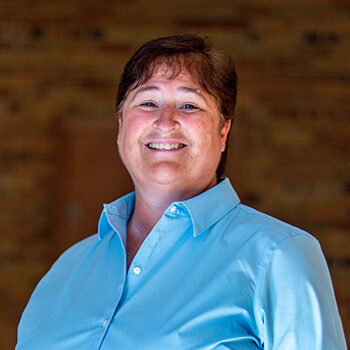The PA program at Concordia University Wisconsin has the freedom and ultimate responsibility for selection and evaluation of students; curriculum design, implementation and evaluation; and determination of who will be awarded a degree and certificate of completion. Retention/program completion, and graduation decisions are made based on satisfactory academic and clinical performance and upon nonacademic, behavioral factors which serve to ensure overall success in the PA profession.
ACADEMIC PROGRESSION
Progression in the Physician Assistant Program is contingent on continued mastery of program student learning outcomes, course objectives, course content, and the demonstration of professional behavior.
To remain in good academic standing, all PA students must:
- Maintain a minimum term cumulative GPA of 3.00 (Note: A term GPA less than 3.00 will result in a review by the Student Progress Committee)
- Earn a final grade of at least 79% in every course (Note: a final grade less than 79% in any course will result in a review by the Student Progress Committee)
- Demonstrate professional behavior (Note: any issues related to professionalism will result in a review by the Student Progress Committee)
Requirements for Successful Completion of the Didactic Year
In order to successfully complete the didactic year and advance to the clinical rotation year, the student MUST:
- Comply with all policies and procedures published by Concordia University Wisconsin (CUW) and those of the Physician Assistant Program.
- Achieve a grade of 79% or higher in all didactic courses.
- Maintain a GPA of 3.0 or higher at the end of each term.
- Submit documentation of health requirements required.
- Maintain BLS certification (on your own) throughout the program and obtain or maintain ACLS certification (provided by the PA program) prior to entering clinical rotations. ACLS certification must remain valid through graduation from the program.
- Comply with professional expectations.
A student with a cumulative GPA of < 3.00 at the end of the 2 nd summer term of the didactic year will be placed on probation for Rotation 1. The DCE will determine the most appropriate clinical setting. The student must pass Rotation 1 EOR exam on first attempt and also receive a B or better as a final grade in Rotation 1. If the student fails to achieve these benchmarks, h/she will be referred to the SPC committee and may be dismissed from the program. Please see the Clinical Handbook for further details about probation in the Clinical Year .
Program competencies
The program required competencies for entry level practice, consistent with the competencies as defined by the PA profession and defined by the CUW PA program are as follows:
- Medical Knowledge/Patient-Centered Practice Knowledge
- Identify etiology, epidemiology, and risk factors in evaluating medical conditions, including
the signs and symptoms.
- Possess the fundamental knowledge to care for patients across the lifespan in acute,
chronic, preventive, and emergent settings.
- Educate patients on health promotion and disease prevention.
- Recognize the financial implications of the provision of healthcare and use available
resources to optimize patient care.
- Interpersonal and Communication Skills
- Interact respectively and effectively with patients and their families.
- Interact respectively and effectively with all members of the healthcare team.
- Clinical and Technical Skills (Patient Care)
- Perform age-appropriate, patient-centered, and pertinent history and physical exams for
patients across the lifespan in acute, chronic, preventive, and emergent settings.
- Select and interpret appropriate lab and diagnostic studies.
- Convey accurate and timely information to healthcare teams in both written and verbal
formats.
- Perform clinical and technical skills and procedures essential to primary care.
- Professional Behaviors
- Accept accountability and admit errors, respond positively to constructive criticism,
maintain self-awareness of limitations, and seek guidance and collaboration, as needed.
- Demonstrate active enhancement of medical knowledge.
- Interact in a professional manner with patients and their families and other healthcare
providers.
- Clinical Reasoning and Problem-Solving
- Synthesize historical information and physical exam findings to establish a differential
diagnosis.
- Interpret and understand data from lab and diagnostic results to establish a definitive
diagnosis.
- Manage common medical conditions, including pharmacologic and non-pharmacologic
modalities, by applying scientific principles and evidence-based medicine.
- Identify systems-based practice issues and potential solutions.
PROBATION
Students who do not maintain a GPA of 3.0 or higher overall will be placed on academic probation. Students who do not meet professional expectations will be placed on professionalism probation. Students will be notified in writing by the PA Program Director. In the written notification, the PA Program Director will specify the reason(s) for probation, the requirements that the student must meet while on probation, the process for removal from probation, and the deadline for completing the requirements.
Students placed on probation:
- May not hold any student society position
- Must submit a written plan (approved by their mentor) to the Chair of the Student Progress Committee (SPC), Program Director, and to their designated mentor summarizing how they plan to improve their
- This plan must be submitted to all parties named within 2 business days of the student receiving the SPC’s decision.
- Must meet with their mentor a minimum of once a month and the course directors they have classes with for the upcoming term at a minimum once.
- If this process is not followed, the student may be dismissed from the program.
- For academic probation, if the student fails to obtain a GPA of 3.0 the next term (Winterim is excluded) s/he will be referred to the SPC committee to consider dismissal from the program.
- If a student fails to demonstrate professionalism while on probation, s/he will be dismissed from the program.
Student Progression during the Clinical Year
- Any student evaluation by a preceptor receiving ‘clearly inadequate (D)”, or “lacks in basic skills “C” on the Preceptor Evaluation of Student Performance will be reviewed by the DCE. The preceptor will be contacted for further information, and the details of the deficiency will be discussed and potential remediation agreed upon with the preceptor.
- If a review of the “Evaluation of Student Performance” indicates deficits in either Clinical Performance or Professional Conduct, a change in future site placement(s) may be made.
- If a review of the “Evaluation of Student Performance” indicates that conduct or performance by the student is deemed unsafe or inappropriate by the Clinical Site or Program Faculty, the behavior will be reviewed by the SPC to determine if the incident requires remediation of the student or dismissal from the program. A change in future site placement(s) may be made if the student is allowed to progress in the program.
- During a rotation, termination of a rotation by a Preceptor as a result of poor or inadequate performance, unsafe behavior, or lack of professionalism on the part of the student shall result in dismissal from the program.
REQUIREMENTS FOR GRADUATION
A student will be recommended for the Master of Science in Physician Assistant Studies degree provided h/she:
- Successfully completes all components of the program (didactic, clinical and capstone). The capstone includes the portfolio and multiple written and practice summative exams that will be conducted within the last four months prior to graduation.
- Maintains an overall GPA of 3.0 or higher.
- Maintains professionalism standards (see pp. 34-43 in this handbook).
- Fulfills all financial obligations to Concordia University Wisconsin.
- Complies with all CUW and Physician Assistant Program policies and procedures
Deceleration
Physician Assistant Program Deceleration Policy :
Deceleration Policy : ARC-PA defines deceleration as “the loss of a student from the entering cohort, who remains matriculated in the physician assistant program.”
The CUW PA program does not decelerate students who cannot meet the program's academic and/or professionalism/behavioral conduct requirements.
Deceleration for a personal medical issue requiring a Leave of Absence or a family medical issue requiring a Leave of Absence may be allowed per University’s "Temporary Stop Out from the University" policy. Please refer to the CUW Graduate Course Catalog to review the "Temporary Stop Out from the University" policy.
- Students may request a temporary stop-out by writing to the Program Director, and must provide written evidence of the medical issue related to the request. Prior to the student’s return to the program, the program director will provide the student with a specific deceleration plan. The plan will be developed on a case-by-case basis by the student’s mentor, the Student Progress Committee and the Program Director.
- Students whose leave of absence extends past the two semesters allowed by the University’s temporary stop-out policy will be required to re-apply to the program.
- During the didactic year, the deceleration plan may require the student to repeat courses in which the content has been updated. During the clinical year, the student may be required to repeat a clinical course(s). Per the Registrar, when a course is repeated, the student’s transcript will reflect the higher of the grades earned.
- It is the responsibility of the student to contact the Financial Aid Office to discuss financial aspects of deceleration and of repeating courses
- Deceleration will result in a delay of graduation, and may result in additional tuition and fee expenses .
Withdrawing from Courses
Students who wish to withdraw from the University during a term must notify the Director of the Physician Assistant Program. If withdrawal is authorized, the student will receive the notation ‘‘W’’ on their permanent academic record for each course in which they are in good academic standing. For each course in which the student is doing failing work, they receive the notation ‘‘WF.’’ In the event that a student is seriously injured/ill, receives an official leave of absence, or cannot continue for any acceptable reason, the student will receive a ‘‘W’’ in all registered courses. A student who discontinues attending classes without official permission to withdraw will receive a grade of ‘‘WF’’ for all registered courses.
Students must complete an Add/Drop Form through the Office of the Registrar.
- If a withdrawal is not made through the Office of the Registrar, a failing grade will be recorded for the affected course(s)
- Withdrawals may be made without penalty within the first half of a term (please see the current Academic Catalog for current dates)
- After the beginning of the tenth week of a semester or the second half of a summer session, withdrawals are reported with a grade of WF (Withdraw Fail)
- Exceptions may be made for withdrawals due to extenuating circumstances such as illness or some other unavoidable occurrence by working with the Professor and Director of Physician Assistant Program.
Students wishing to re-enter the Physician Assistant program after a withdrawal must follow the procedure for re-entry below:
- The student must notify the PA Program Director in writing no later than January 15th of the given year that they will to return to the program.
- The student must be approved by the PA Program Director for return to the program in May of that year. Medical Reasons: If a student leaves the program due to medical reasons, the readmission request must have a letter from a physician stating the student is cleared for release and will be able to comply with the Technical Standards set by the Physician Assistant Program. Acceptance may be conditional on the length of time the student has been away from the program and space available in the class.
PROFESSIONAL BEHAVIOR AND ACADEMIC INTEGRITY
Professional Behavior Expectations
The National Board of Medical Examiners has identified behaviors consistent with professionalism, listed below. Each member of the PA program should strive to model these behaviors to ensure quality patient care and the health of the profession.
Altruism
- Helps colleagues and team members who are overwhelmed
- Takes on extra work to help the team
- Serves as knowledge of skill resource to others
- Advocates for policies, practices and procedures that will benefit patients
- Endures inconvenience to accommodate patient needs
Honor and Integrity
- Admits errors and takes steps to prevent reoccurrence
- Deals with confidential information appropriately
- Does not misuse resources (i.e. school property)
- Attributes ideas and contributions appropriately for other’s work
- Upholds ethical standards in research and scholarly activity
- Requests help when needed
- Assumes personal responsibility for mistakes
Caring and Compassion
- Treats the patient as an individual, considers lifestyle, beliefs and support systems.
- Shows compassion to patients and maintains appropriate boundaries in professional relationships
- Responds to patient’s needs in an appropriate way
- Optimizes patient comfort and privacy when conducting history, physical examination and procedures
Respect
- Respects institutional staff and representatives; respects faculty and colleagues during teaching sessions
- Adheres to appropriate dress code
- Participates constructively as a team member
- Adheres to institutional and departmental policies and procedures
- Displays compassion and respect for all patients even under difficult circumstances
- Discusses patients/faculty/colleagues without inappropriate labels or comments
Responsibility and Accountability
- Presents self in an appropriate manner to patients and colleagues
- Completes assignments and tasks in a timely manner
- Responds promptly when called or when pages, emails or phone calls are sent
- Intervenes when unprofessional behavior presents a clear and present danger
- Uses resources effectively
- Responds appropriately to an impaired colleague
- Makes valuable contributions to class, rounds and group interactions
- Elicits patient’s understanding to ensure accurate communication of information
- Facilitates conflict resolution
- Remains flexible to changing circumstances and unanticipated changes
- Balances personal needs and patient responsibilities
- Provides constructive feedback
Excellence
- Has internal focus and direction, sets goals to achieve excellence
- Takes initiative in organizing, participating and collaborating with peer groups and faculty
- Maintains composure under difficult situations
- Inspires confidence in patients by proper preparation for clinical tasks and procedures
Adapted from Behaviors Reflecting Professionalism: National Board of Medical Examiners.
Unprofessional Behavior/Professional Misconduct
An important aspect of any professional educational curriculum is the development of professional behaviors and role identity. Evidence shows that unprofessional behavior exhibited during training is a predictor of future problems with state regulatory boards and requires disciplinary actions (Papadakis, Hodgson, Teherani and Kohatsu, 2004). Since such behavior presents a potential danger to the provision of good patient care and may damage the credibility of the profession, professional behavior is equal in importance to content knowledge and manual skills.
The PA Program takes breaches of professional conduct seriously.
Definitions
Cheating: includes, but is not limited to:
- The use of unauthorized assistance in taking any type of test or completing any type of classroom assignment.
- Assisting another student in cheating on a test or class assignment, including impersonation of another student.
- Turning in someone else's work as your own (with or without his or her knowledge).
- Turning in a completely duplicated assignment is a flagrant offense, but even copying only a portion of the assignment and turning it in as your own is considered cheating.
- Allowing someone else to turn in your work as his or her own.
- Several people writing one paper, or other work, and turning in multiple copies, all represented (implicitly or explicitly) as individual work.
- Using any part of someone else's work without proper acknowledgement.
- Stealing an examination or a solution from the instructor. This is an extremely flagrant offense.
Plagiarism: includes, but is not limited to:
- Failure to give full and clear acknowledgement of the source of any idea that is not your own.
- Handing in the same assignment for two different courses without the consent of the instructors.
Academic Misconduct: includes, but is not limited to:
- Intentionally or recklessly interfering with teaching, research, and/or other academic functions.
Any Physician Assistant student involved in behavior which is deemed unprofessional, unethical, or immoral is subject to disciplinary action which may include reprimand, probation, suspension, or dismissal from the program. Any rude, disrespectful, or derogatory remark, gesture, or act towards any instructor, program, university faculty, or staff member, clinical preceptor, peer, and patient or staff member of any clinic or hospital is not consistent with professional behavior.
ACADEMIC DISHONESTY POLICY
- First instance: The faculty member determines the This may include any of the following: an opportunity to redo the assignment or test, a reduced grade on the assignment or test, a failing grade on the assignment or test, a lower grade in the course, a failing grade in the course, or removal of the student from the course.
- Second instance: The faculty member determines the penalty, and the campus-specific Chief Academic Officer (CAO) or designee connects with the student at which time additional sanctions may be
- Third instance : The faculty member determines the penalty, and the Academic Conduct Board (ACB) meets with the student at which time additional sanctions may be imposed, including suspension or expulsion. On the Mequon campus the ACB consists of the CAO at Mequon, AVP of Academics for Student Success, and the Dean of the School in which the student resides. If the student is an adult learner, the appropriate Center Director joins the ACB. If the student is a graduate student, the appropriate Program Director joins the ACB. The decision of the ACB is final.
STUDENT CONDUCT CODE
Click here for the the Concordia Code of Student Conduct. All students should refer to this link for the complete policies related to the University.
APPEAL PROCESS
On the Mequon campus students may appeal a faculty-issued academic dishonesty decision or penalty in writing to the Dean of the School in which the course was offered within 15 working days of receiving the report. The Dean (in consultation with the Department Chair or Program Director or Center Director) will consider the appeal and render a decision within 10 working days of receiving the appeal and issue a written response to the student.
GENERAL ACADEMIC GRIEVANCES
The steps listed below are to be carried out with an attitude of Christian love and concern for academic, moral, and spiritual growth. Face-to-face meetings are encouraged throughout the process, but may not be possible because of the situation. A PA student would utilize this procedure if s/he wants to dispute a grade (either test grade or final grade).
Step I: The student meets with the instructor to resolve the matter informally.
Step II: Graduate students submit a written grievance to the Program Director of the program in which the course was taught within 10 working days after meeting with the instructor. Upon receipt of the student’s grievance, the Program Director will notify the instructor, who will then have 10 working days to submit a written explanation of the incident to the Program Director. Within 5 working days of receiving the instructor’s report, the Program Director will send a written response to the student and the instructor.
Step III: If the student is still not satisfied, s/he may file a written complaint with the Dean of the School (of Health Professions) in which the course was taught within 10 working days of receiving the step II report (if applicable). The Dean will render a decision and send a written response to the student, the instructor, and the Program Director within 10 working days of receiving the grievance. The Dean’s decision is final.
GENERAL POLICIES AND PROCEDURES
Fair Practices
PA students have equal access to facilities and programs of the Concordia University Wisconsin as students of other programs. CUW is committed to equality of opportunity and does not discriminate against applicants, students, or employees based on race, religion, color, national origin, gender, age, sexual orientation, or disability. All policies concerning equal opportunity/affirmative action, sexual harassment, discrimination, and conflicts of interest are found in the Code of Student Conduct and in this Handbook.
Health Requirements
Applicants accepted for admission are required to submit a completed health certificate provided by the program that certifies that the student is free from communicable diseases and physical limitations that may cause injury to the individual or to another person if they were to perform procedures related to the Physician Assistant Program of Concordia University Wisconsin. It also will note if the student is in good physical and mental health. The form must be completed and signed by a licensed health care provider and uploaded and checked off by CastleBranch.com by the designated date set by the program. Also, applicants must have their own health insurance policy and provide evidence of such at the start of each Academic Year. This document is also uploaded to CastleBranch.com. Students who do not fulfill this requirement will not be allowed in any activity that requires seeing patients, with no exceptions.
The PA program follows the Centers for Disease Control and Prevention (CDC) guidelines for healthcare personnel recommendations. The PA program requires the following:
- Current PPD or Quantiferon. CXR may be required for conversions.
- Hepatitis B immunization (established by three reported dates of immunization or by documented testing of antibody titer);
- Completed Dtap or Tdap series, and have Tdap or Td given within the past 10 years
- Rubella immunity (established by two reported dates of vaccination or documented antibody titer)
- Varicella immunity (established by two reported dates of vaccination or documented antibody titer)
- Annual Influenza vaccination
In order to assure our affiliated healthcare facilities that our students are appropriately immunized, the following PA program policy is in effect:
- All PPDs and Quantiferon must be current on April 20th of every year.
- Failure to provide a current PPD or Quantiferon evaluation will prevent the student from participating in any clinical experiences.
- All immunization documentation must be uploaded to CastleBranch.com. Failure to provide completed documentation will prevent the student from participating in clinical experiences.
Health Insurance
Physician assistant students must have basic health insurance coverage. The clinical sites where the students will be completing their rotations require all students to have health insurance.
Students who do not have up-to-date health insurance will not be allowed to participate in any activity that involves patient contact. This may result in the student not being able to fulfill the requirements of certain courses and activities which could have a detrimental effect on the student’s progress/grade.





